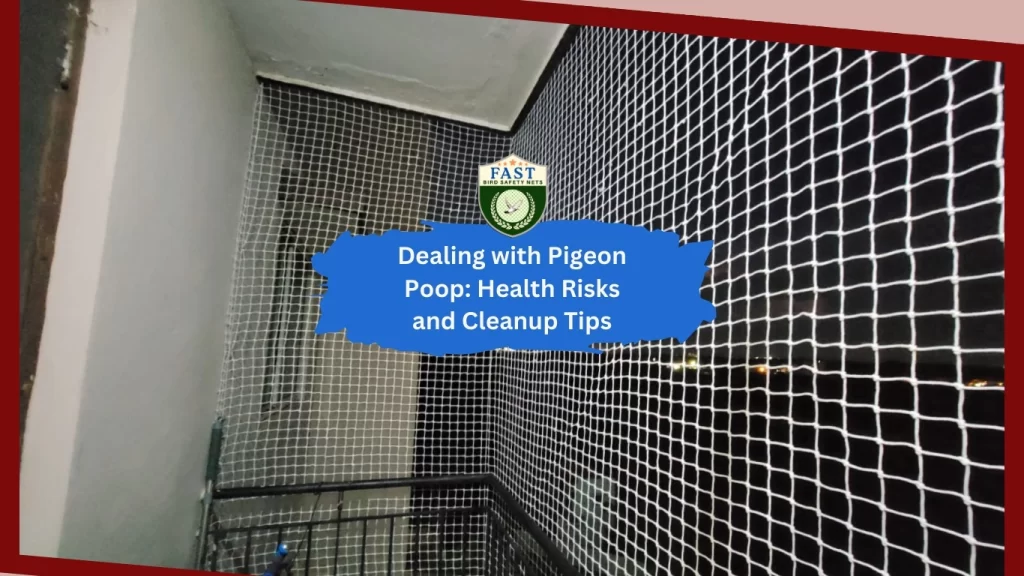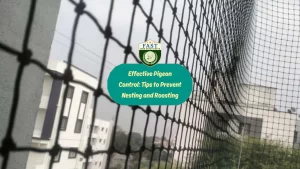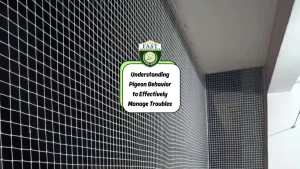Pigeon poop, also known as bird droppings, can be a common sight in urban areas where pigeons roost and nest. While it may seem harmless, pigeon poop poses various health risks and requires proper cleanup to maintain a safe and hygienic environment. This article explores the health risks associated with pigeon poop exposure and provides practical cleanup tips for homeowners and property managers.
Understanding Pigeon Poop:
Composition of pigeon poop: Pigeon poop consists of a combination of uric acid, feces, and other waste products. Its appearance can vary depending on the diet and health of the pigeons.
Where pigeons poop: Pigeons tend to poop in areas where they roost and nest, such as rooftops, ledges, balconies, and outdoor furniture.
Frequency of pigeon poop: Pigeons can produce a significant amount of poop each day, leading to accumulation and potential health hazards.
Health Risks of Pigeon Poop:
Respiratory issues: Inhalation of dried pigeon poop particles can irritate the respiratory tract and exacerbate existing respiratory conditions such as asthma and allergies.
Disease transmission: Pigeon poop can harbor various pathogens, including bacteria, fungi, and parasites, which can cause diseases such as histoplasmosis, cryptococcosis, and salmonellosis.
Slip and fall hazards: Wet pigeon poop can create slippery surfaces, increasing the risk of slips, falls, and injuries, especially on walkways and staircases.
Cleanup Tips for Pigeon Poop:
Safety precautions: Before starting the cleanup process, wear protective gear such as gloves, a mask, and goggles to minimize exposure to pigeon poop and potential contaminants.
Moistening the poop: To prevent the spread of airborne particles, lightly mist the poop with water before attempting to clean it up. This helps to keep the dust and debris contained.
Using a scraper or spatula: Carefully scrape off the dried poop using a scraper or spatula, starting from the edges and working your way towards the center. Avoid applying too much pressure to avoid damaging the surface.
Disposing of the poop: Place the collected poop in a plastic bag or trash bin lined with a disposable liner. Seal the bag tightly and dispose of it in accordance with local regulations for waste disposal.
Cleaning the area: After removing the poop, clean the affected area with soap and water to remove any remaining residue and disinfect the surface. Wash thoroughly with water and allow it to dry completely.

Preventing Pigeon Poop Accumulation:
Bird deterrents: Install bird deterrents such as spikes, nets, or repellents to prevent pigeons from roosting and nesting on your property.
Regular maintenance: Keep your property clean and well-maintained to discourage pigeons from nesting. Remove any food sources, standing water, or debris that may attract pigeons.
Sealing entry points: Seal off any openings or gaps in your property where pigeons may gain access, such as gaps in roofs, windows, and eaves.
Seeking Professional Help:
In cases of heavy infestation or extensive cleanup, consider seeking professional help from pest control experts or cleaning services specializing in bird waste cleanup.
Professional cleaners have the necessary equipment, experience, and knowledge to safely and effectively clean up pigeon poop and disinfect affected areas.
Conclusion:
Pigeon poop may seem harmless, but it poses various health risks and requires proper cleanup to maintain a safe and hygienic environment. By understanding the health risks associated with pigeon poop exposure and following practical cleanup tips, homeowners and property managers can effectively deal with pigeon poop and prevent its accumulation. Remember to prioritize safety and consider seeking professional help for extensive cleanup tasks.






